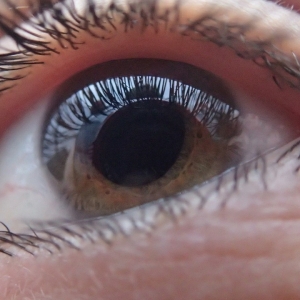
Glaucoma is a condition where damage to the optic nerve causes vision loss and blindness. There are methods of early detection, and along with treatment, there are ways to help keep the eye healthy and safe from significant vision loss.
Causes
Glaucoma usually occurs when there is pressure that builds up inside the eye. This is called intraocular pressure. The pressure damages the optic nerve, which is responsible for transmitting visual data to the brain. When the optic nerve is damaged, vision can be lost partially or fully, and cannot be reversed.
There are other ways to develop glaucoma, such as chemicals that might get in the eye, or blunt trauma to the eye. Though these are possible, they are rare and often not a risk for most people.
Though usually inherited genetically, many people don’t develop symptoms until later in life. It’s suggested that if you’re over the age of 40 and have a family history of glaucoma, you should get an annual full eye exam to check for signs of trouble. If left untreated, glaucoma can result in complete blindness in only a few years.
Symptoms
Most people do not experience symptoms until the disease has taken a large chunk of their vision. There is no pain or extreme vision loss at first. A common first sign is the loss of peripheral vision, or halos that appear around light.
Because there are no clear or sudden symptoms, it’s important to visit an eye doctor routinely to check your eyes for signs of glaucoma. If you have certain risk factors, such as a family history of glaucoma, or diabetes, it’s more important to see an eye doctor once a year for a full exam.
If you are experiencing eye pain, or are having consistent trouble seeing, it’s time to see a doctor immediately.
Treatment
If your doctor diagnoses you with glaucoma, there are some treatments that will help. Your options include:
- Eye drops – these drops help to either reduce the fluid or to help drain any fluid in your eye, thus relieving the pressure on your optic nerve. Unfortunately with this treatment and any other, any lost vision is permanent, and the drops will only help to prevent further loss of eyesight.
- Laser surgery – Most of the surgeries you may get will help to reduce the fluid in your eye by giving it a way to drain. This, like the drops, will allow the pressure in your eye to decrease, stopping any future damage to your optic nerve.
- Microsurgery – This option involves inserting a tube or creating a new way for fluid to drain from the eye. Though helpful, this surgery can sometimes not work the first time and has to be redone. Though typically safe, patients can sometimes experience temporary or permanent vision loss after surgery, or experience infection or bleeding.
As with most diseases, prevention is always a better option than treatment. Though glaucoma isn’t always completely preventable, keeping informed about your body and seeing your doctor regularly will ensure that you catch any problems early enough to stop them in their tracks.
If you are concerned that you are developing glaucoma, schedule an appointment with an optometrist in Centralia at Innovations in EyeCare now.
